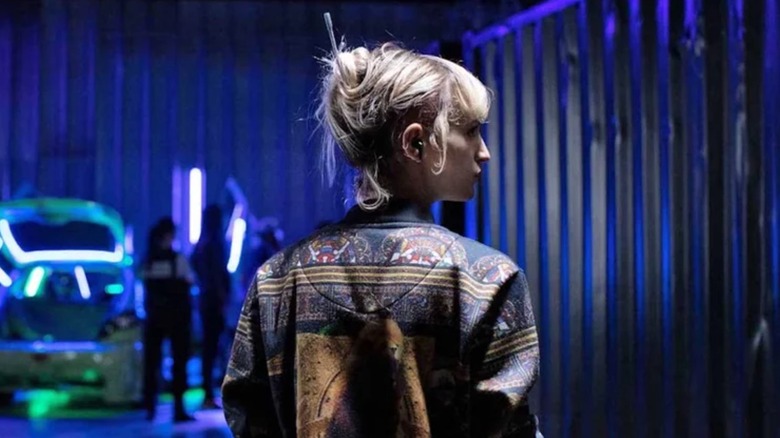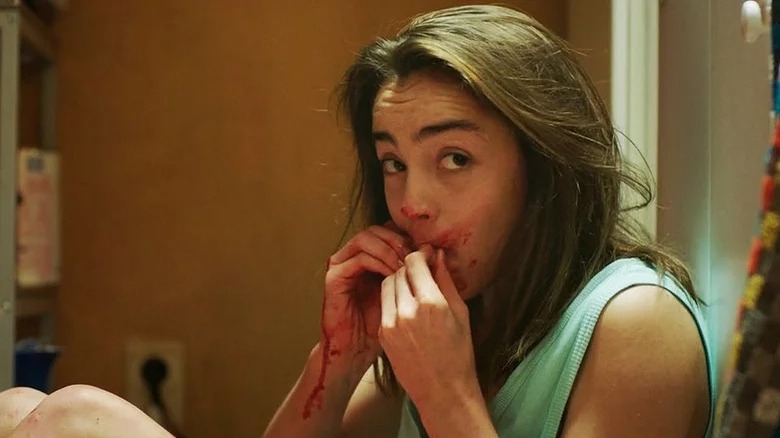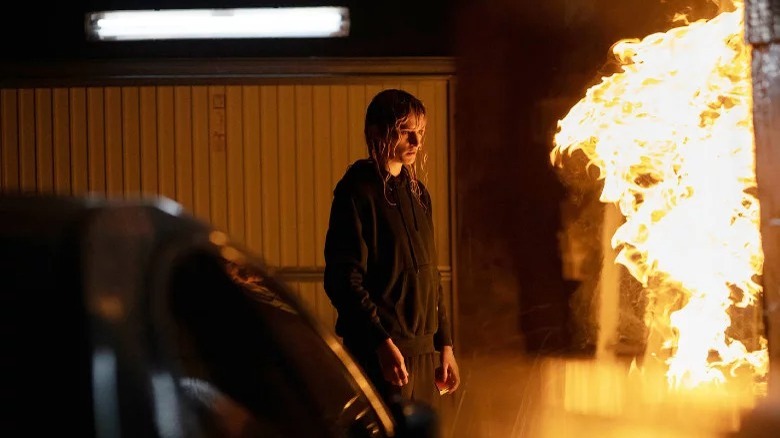Titane Director Julia Ducournau Says 'If Art Is Canceled, It's The End Of Civilization' [SXSW 2023]
"Titane" and "Raw" filmmaker Julia Ducournau took to the stage recently for a South By Southwest spotlight discussion facilitated by Austin Film Society's Holly Herrick, with /Film's Erin Brady reporting. During the event, Herrick asked Ducournau to weigh in on the "sky is falling" discussions that abound in the film industry, particularly in relation to the box office and pandemic-era changes that have drastically impacted the medium. The Palme d'Or winning filmmaker had some choice words about a situation that she says "we can't sugarcoat," especially when it comes to the way art is being received.
While Ducournau says that the situation speaks to "our capacity to adapt," she does find the film industry downturn concerning. "I know that's everything's crashing. The industry is crashing, in every, in every country at every level," she says. "But I think somehow for me, where I feel more in danger, let's say, is the way art is crashing and is considered nowadays." Ducournau was careful to "keep it to [her] own experience than try to make a broader statement" when describing the ways the reception to art seems to have changed lately, so she cited some surreal examples of viewers who have confused her art with her life in serious ways.
'We are not mentors'
"For example," she shared, "some people seem at one point to think that I was a cannibal, or that I wanted to kill people or f*** with your car ... but unfortunately, I think that nowadays, people tend to expect from films to reflect exactly what the person is in real life." Ducournau went on:
"From my point of view, we are not mentors. We are not there to impose anything. All I know is we're there to raise more and more questions constantly. You can't do that if people, let's say, asked from us to portray only, "good" [or] "optimistic" [art]."
The filmmaker is touching upon a conversation that comes up frequently on social media in recent years, with quick-to-anger viewers regularly confusing on-screen depictions of something for endorsement from the director, writer, or stars. Ducournau, though, also has words of wisdom about where this seemingly recent compulsion to conflate art and artist may have started. "This is not something that I think it's preventable, but I know where it comes from because the world we live in nowadays is so dark," she told audiences at SXSW. "And, you know, I think people want a break from the world and that cinema used to be able to bring that break from the world." It's a development that she says makes her "very sad."
'We cannot let this disappear'
Ultimately, Ducournau spoke frankly about her fear of art being canceled, and while her above comments indicate that she may be speaking in the modern, deemed-problematic sense, it seems clear that she's also responding to the original question about how the post-COVID economy is impacting experiences like seeing movies in theaters. "I'm sure that there is something irreplaceable, in what we do," she says. "When I say 'we' I talk as well about museums, about exhibitions, about concerts, is that it just brings us together and it helps us."
"It helps us talk together," Ducournau says of art, "and we cannot let this disappear. We're f***ed if we do." She ends with some strong words about the future, saying, "Again for me, there is no purpose in art other than [to] make us come together and talk. If art is canceled, it's the end of civilization. It's a pillar of civilization. That's what I'm scared of." The future of art is definitely frightening for all the reasons the filmmaker makes plain here. But the fact that Ducournau's wild stunner of a film "Titane" earned rave reviews and acclaim in 2021 despite being a genre-defying movie about murder and car sex feels like a little bit of proof that transgressive, conversation-worthy art may still be alive — at least for now.


